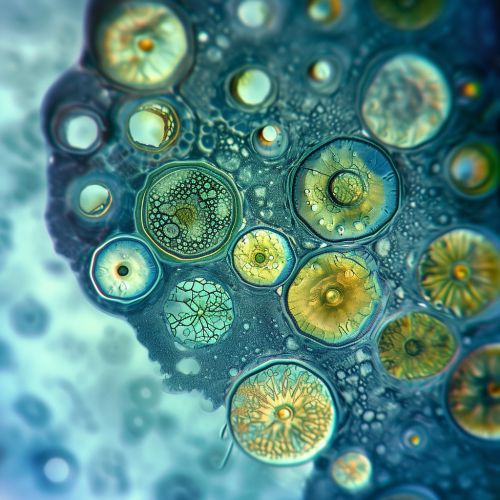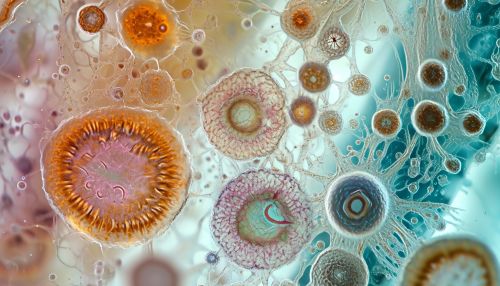Percolozoa
Overview
Percolozoa is a group of eukaryotic organisms, classified under the supergroup Excavata. This group is composed of two major subgroups: Heterolobosea and Euglenozoa, which are further divided into several classes and orders. The members of Percolozoa are characterized by their unique feeding and reproductive habits, as well as their distinct cellular structures and genetic makeup.


Classification
Percolozoa, previously known as Schizopyrenida, is a phylum under the kingdom Protista. It was reclassified due to the discovery of distinct morphological and molecular characteristics that set it apart from other groups. The classification of Percolozoa has been a subject of debate among scientists due to the complex nature of its members' life cycles and the diversity of their habitats.
Morphology
Percolozoans are unicellular organisms with a complex cellular structure. They possess a well-defined nucleus, numerous mitochondria, and a unique feeding apparatus known as the cytostome. The cytostome is a specialized structure used for ingesting food particles. Some species also have flagella, which aid in locomotion.
Life Cycle
The life cycle of Percolozoa is complex and involves both asexual and sexual reproduction. The asexual phase includes binary fission, while the sexual phase involves the production of gametes that fuse to form a zygote. The zygote then undergoes meiosis to produce haploid cells, which can either divide asexually or undergo another round of sexual reproduction.
Ecology
Percolozoans are found in a variety of habitats, from freshwater to marine environments, and even in soil. They play a crucial role in nutrient cycling and are important components of the microbial food web. Some species are also known to be pathogenic, causing diseases in humans and other animals.
Pathogenicity
Certain species of Percolozoa are known to cause diseases in humans and animals. For instance, Naegleria fowleri, a species of Heterolobosea, is a pathogenic amoeba that causes primary amoebic meningoencephalitis, a rare and often fatal brain infection.
Research and Studies
Research on Percolozoa has been focused on understanding their unique life cycles, cellular structures, and genetic makeup. These studies have provided valuable insights into the evolution of eukaryotes and the mechanisms of pathogenicity in protists.
